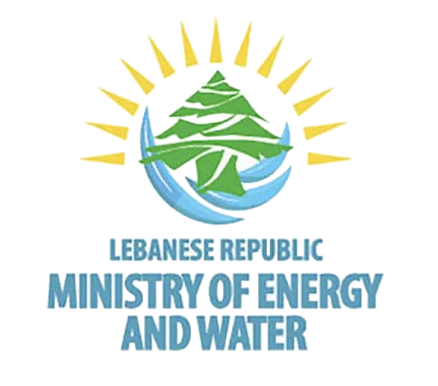PROJECT

In a pivotal collaboration with the Ministry of Energy and Water in Lebanon, Bibuilt spearheaded a transformative initiative, implementing a suite of solutions designed to fortify critical infrastructure. This multifaceted approach included the integration of Oil and Gas Facilities, a Full ERP Deployment, Fuel Tanks Management, and the installation of IoT Sensors.
The overarching goal was to enhance operational efficiency, optimize resource management, and bolster the Ministry’s capabilities in overseeing vital energy and water infrastructure.

LEBANON
Solutions Implemented

Oil and Gas Facilities Integration:
Bibuilt's expertise in the energy sector shone through the seamless integration of Oil and Gas Facilities. Leveraging cutting-edge technologies, Bibuilt implemented a comprehensive solution to monitor, control, and optimize operations within the Ministry's energy infrastructure. This transformative solution empowers the Ministry with enhanced capabilities to manage oil and gas facilities with precision and effectiveness, ensuring a resilient and efficient energy landscape.

Full ERP Deployment:
Recognizing the complex and dynamic nature of the Ministry's operations, Bibuilt executed a Full ERP system deployment. Addressing the entire spectrum of the Ministry's needs, from project initiation to accounting, this comprehensive ERP solution ensures streamlined workflows, real-time data access, and efficient communication across various departments. The Full ERP Deployment stands as a cornerstone in the Ministry's quest for operational excellence.

Fuel Tanks Management:
Fuel management is critical to the Ministry's operations, and Bibuilt addressed this challenge with a specialized Fuel Tanks Management system. This solution provides real-time monitoring of fuel tanks, ensuring accurate inventory levels, timely replenishment, and adherence to safety standards. The Fuel Tanks Management system contributes significantly to the Ministry's operational resilience, ensuring a seamless and secure supply chain for critical resources.

IoT Sensors Installation:
Bibuilt's innovative approach extended to the installation of IoT sensors, revolutionizing the Ministry's capabilities in data acquisition and monitoring. These sensors offer real-time insights into energy and water infrastructure, enabling proactive decision-making, predictive maintenance, and ensuring the integrity of critical assets. The IoT Sensors Installation marks a leap forward in the Ministry's journey towards data-driven infrastructure management.

Inventory Management:
The Fuel Distribution Module facilitates real-time tracking of fuel inventory, offering TotalEnergie accurate and up-to-date information on stock levels. This feature minimizes the risk of shortages or excesses, providing a solid foundation for optimized inventory management. TotalEnergie gains a comprehensive overview of their fuel stock, ensuring they can meet customer demands with precision.
Key Outcomes and Benefits
The collaborative efforts between Bibuilt and the Ministry of Energy and Water have yielded profound outcomes, fortifying the Ministry's role in overseeing Lebanon's crucial energy and water resources.

Operational Excellence:
The integration of Oil and Gas Facilities, Full ERP Deployment, and Fuel Tanks Management has resulted in streamlined and efficient operations, positioning the Ministry as a beacon of operational excellence in the region.

Data-Driven Decision-Making:
The installation of IoT sensors empowers the Ministry with real-time data insights, facilitating informed and data-driven decision-making. This shift towards a data-centric approach enhances the Ministry's ability to respond dynamically to evolving challenges.

Resource Optimization:
The Full ERP system optimizes resource management, ensuring the optimal allocation of resources, streamlined workflows, and enhanced project coordination. This efficiency contributes to resource optimization and cost-effectiveness in the Ministry's operations.

Infrastructure Resilience:
The holistic approach to energy and water infrastructure management enhances overall resilience, ensuring the Ministry is well-equipped to address challenges and disruptions effectively. The implemented solutions fortify the Ministry's capacity to maintain the integrity and reliability of critical infrastructure.

The solutions implemented—Oil and Gas facilities, Full ERP deployment, Fuel Tanks, and IoT Sensors Installation—stand as pillars of progress. The solutions implemented are not just tools; they are a testament to the resilience and forward-thinking approach necessary for managing critical infrastructure in a rapidly evolving landscape.
